Two days ago, we received an email from a lovely reader who’s currently teaching in a Chinese middle school: “…while all aspects of China fascinate me, sometimes I feel like the thing I understand the LEAST is internet memes. I work in a school with 300 Chinese students who are inexplicably obsessed with a cartoon pig. None of us can understand it.”
Which brings us to – ladies and gentlemen – the cartoon pig.
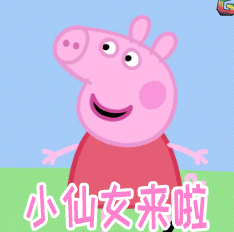
“Check this out!”
It was our friend Xue. Approaching our table in the restaurant, she lifted her right arm and flashed a pink object on her wrist excitingly.
“What the heck is this?!”
Yan and I stared at Xue’s wrist in shock: the chunky accessory, as it turned out, was a watch. With a bright pink band and a plastic body, it was clearly designed for kids but not for Xue, our stylish girl friend who’s now in her late 20s.
“Wait, you guys don’t know? This is the Peppa Pig watch that was completely sold out on Taobao! I finally received mine today after ordering two weeks ago.”
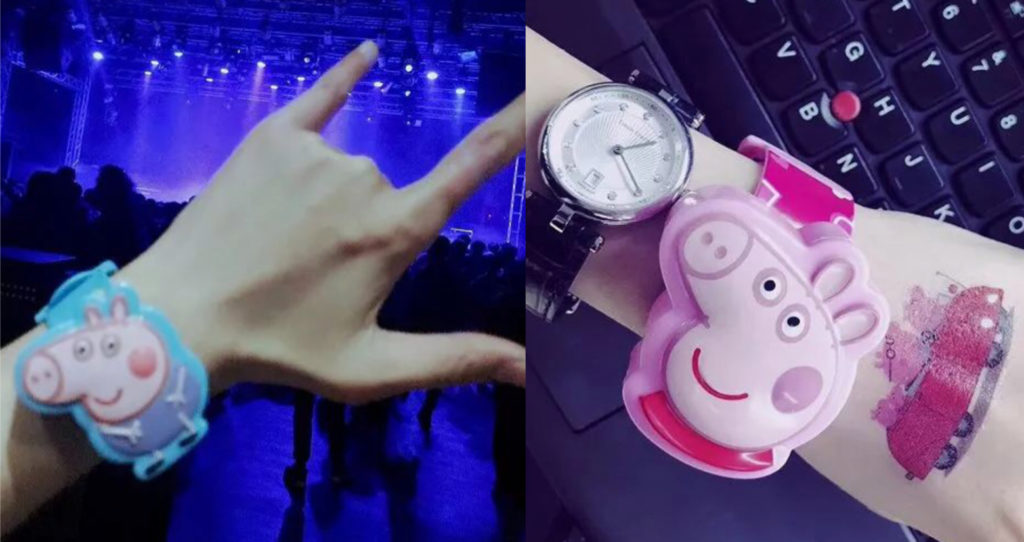
We might had missed on the viral watch, but we did notice Peppa Pig has been virtually everywhere in the city. On my way to the restaurant I bumped into a young couple in Peppa Pig T-shirts. In supermarkets and shops there are aisles filled with Peppa Pig merchandizes. Yesterday, our colleague was showing off her Peppa Pig stickers in the office. Oh, and Uniqlo just launched an entire apparel collection in collaboration with Peppa Pig too…
What. Is. Going. On?
The Story of the Story
Let’s start with the basics.
Peppa Pig, the British children’s television series, was originally aired in 2004. Revolving around Peppa the girl, her family and friends, the show features a simple storyline that is based on Peppa’s everyday activities such as attending playgroup, going swimming, visiting the grandparents or riding bikes. To date, the show has screened four seasons and is currently shown in over 180 territories – a massive hit among preschool children worldwide.
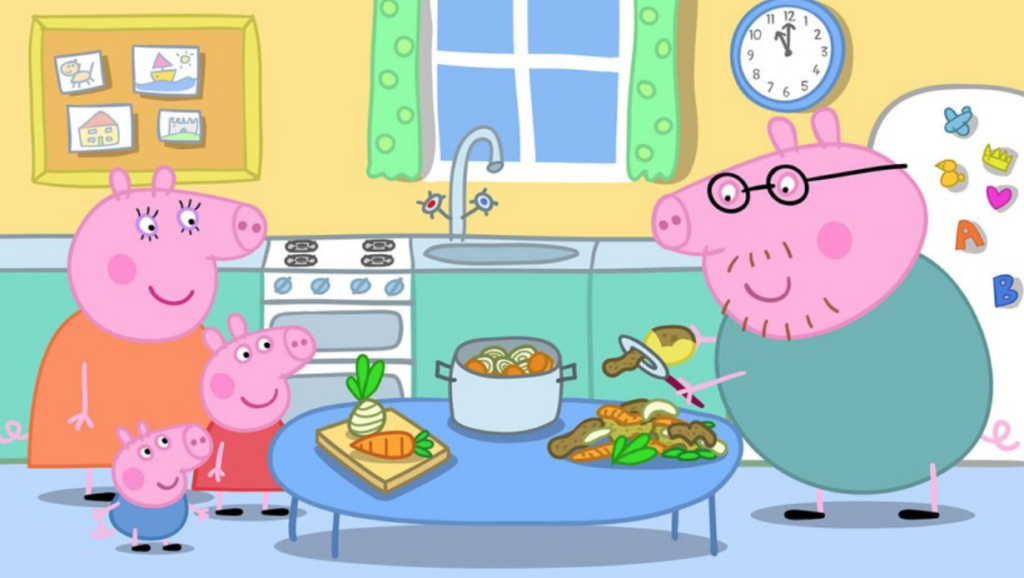
Peppa's loving family.
In 2015, Peppa Pig was first broadcasted in mainland China by CCTV, the state-owned China Central Television Station. Within a few days, it had managed to beat all other animation shows airing at the time and topped the gross rating chart for all kid’s programs.
In October 2015, China's three largest video platforms, Iqiyi, Youku and Tencent, brought the show to domestic audience online. Within a year, Peppa Pig had attracted more than 10 billion views while maintaining a Douban (the Chinese equivalent of IMDb) rating at 9, an extremely high score that no other domestic animation series had ever managed to achieve. “As a daycare teacher, Peppa Pig is my absolutely favorite for showing in class,” said a Douban user, “the plot is simple, humorous, yet filled with educative twists. My kids are obsessed!”
A well-made animation series being widely adored by young kids around the world including China – so far, everything makes sense.
But wait.
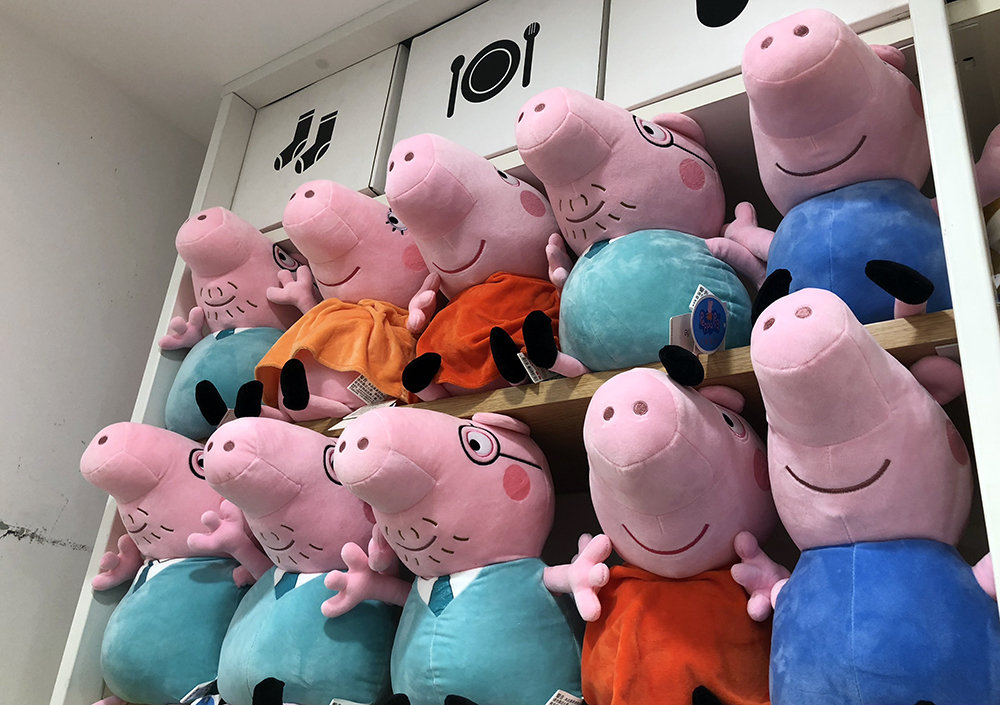
Over the past few months, Peppa's life has been inexplicably “upgraded” here in China. Today, she is no longer just an animation character for kids, but a public sensation, an internet celebrity and a cultural icon that is being widely treasured by young Chinese adults everywhere (we are mainly talking about the “post-90s”and “post-00s” generations here, although our colleagues born in the 1980s are hooked to Peppa too…). More specifically, Peppa Pig has become the metaphor for an interesting, hard-to-translate Chinese term : “社会人” (“social folks”).
“小猪佩奇身上纹,掌声送给社会人!”
“A tattoo of Peppa Pig on the body, a round of applause for the social folk!” (we really like Sixthtone’s version of translation too :“get your Peppa Pig tatt, shout out to your frat!”) – to our knowledge, this viral internet proverb was originally invented by the Chinese netizens to mock against “social-shake” children on Kuaishou, aka those who dressed and acted like gangster adults, but in reality are still at the age of, well, watching Peppa Pig (that’s definitely an exaggeration, but you get the idea).
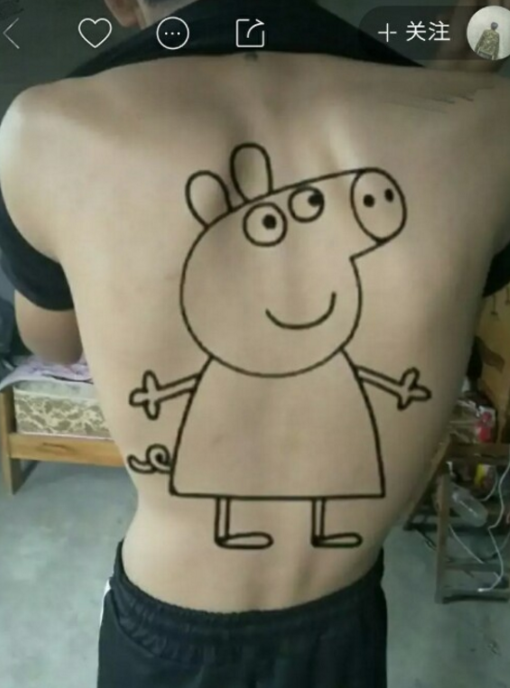
The famous "social folk" Peppa tattoo.
Once Peppa was coined as the representative of “social folks”, imaginations of Chinse netizens began to flourish. With countless memes, emojis and short videos being made, every single Chinese social platform is flooded with Peppa. The topic #Peppapig on Sina Weibo has been viewed over 300 million times; on Bilibili, thousands of users left danmuku (弹幕) confessing how they couldn’t stop watching the show. Creative netizens even remade episodes with their own dialects and reconstructed the story with twists of local culture; for instance, this Chongqing dialect version has been watched over 3 million times.
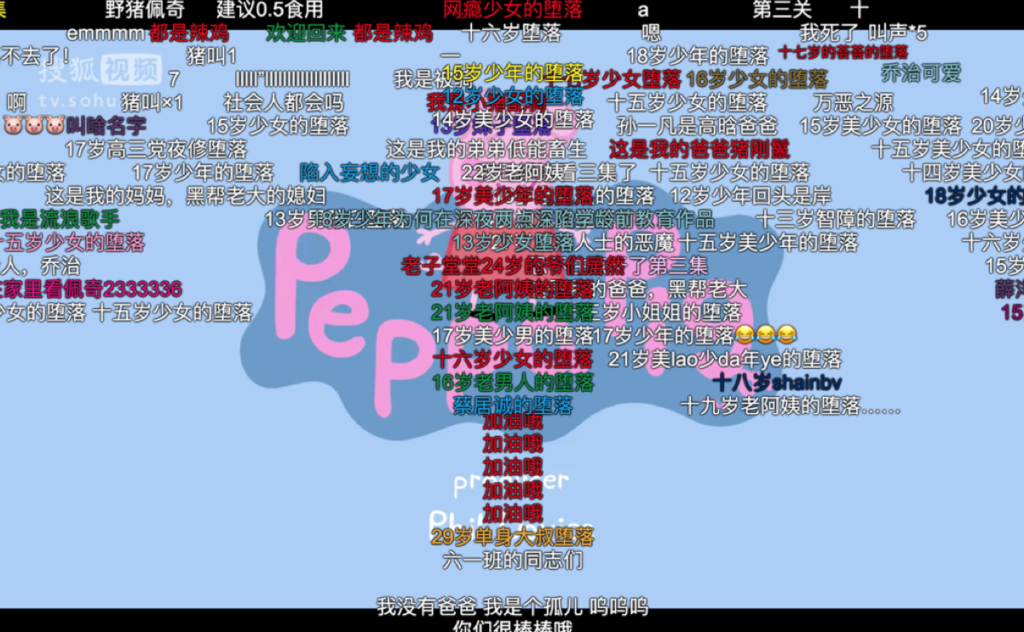
Users on Bilibili commenting that they have “degenerated” because of watching Peppa non-stop.
But Peppa didn’t just stay as an online meme celebrity. Thanks to Douyin, Kuaishou’s competitor and currently the most popular short-video app among urban netizens, Peppa has further evolved into a fashion icon that’s widely featured on clothes and accessories. Like many other trends in China, the biggest promoter behind is third-party merchants who cared little or nothing about copyrights; eyeing the short-term opportunity for profit, these sellers, mainly existed on Taobao and WeChat, quickly came up with Peppa-themed T-shirts, caps, stickers, bags, watches, and everything else one could possibly imagine, all at a relatively affordable price.
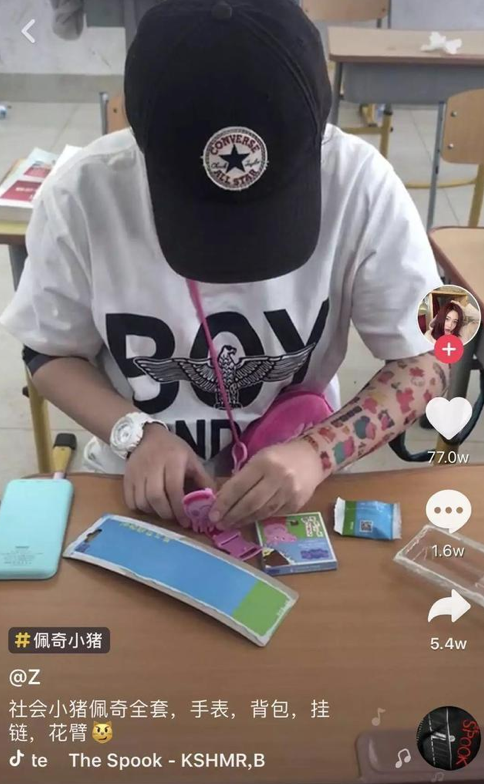
A typical "social Peppa" outfit on Douyin: arm full of sticker tattoos, cross-body Peppa bag, an a giant pink Peppa watch.
Today, there are two Peppa Pigs coexisting in the Chinese society. One in its “original” form and targeting the children’s’ market, and one for adults, in particular for the younger ones who've been heavily influenced by internet culture and trends.
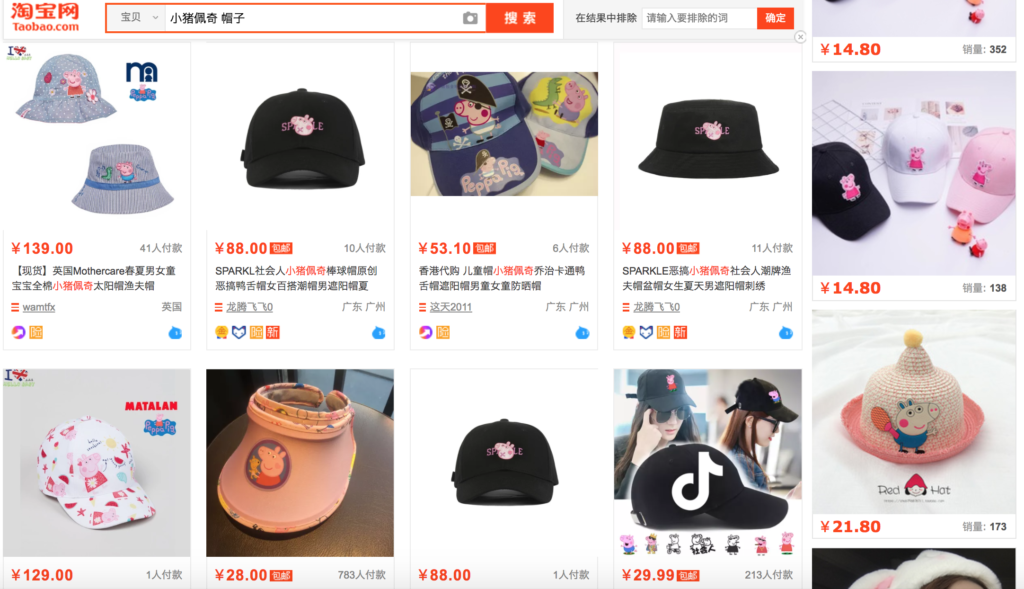
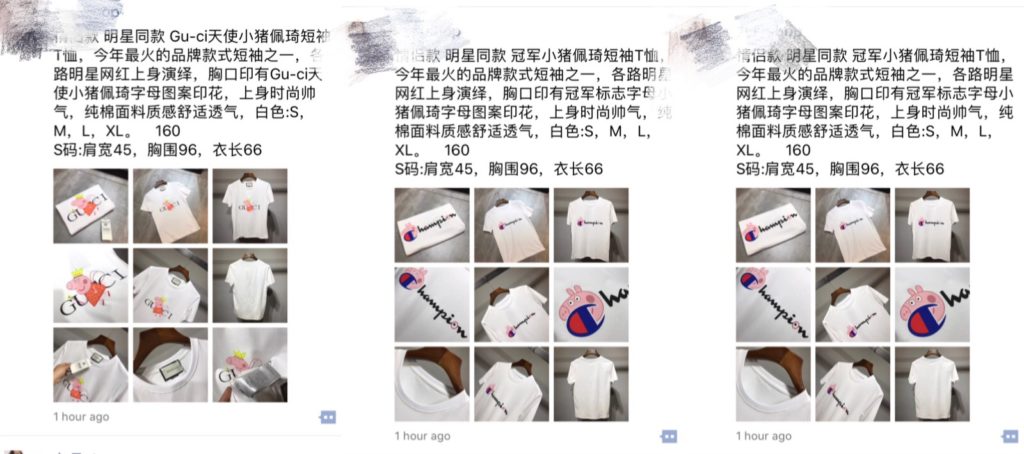
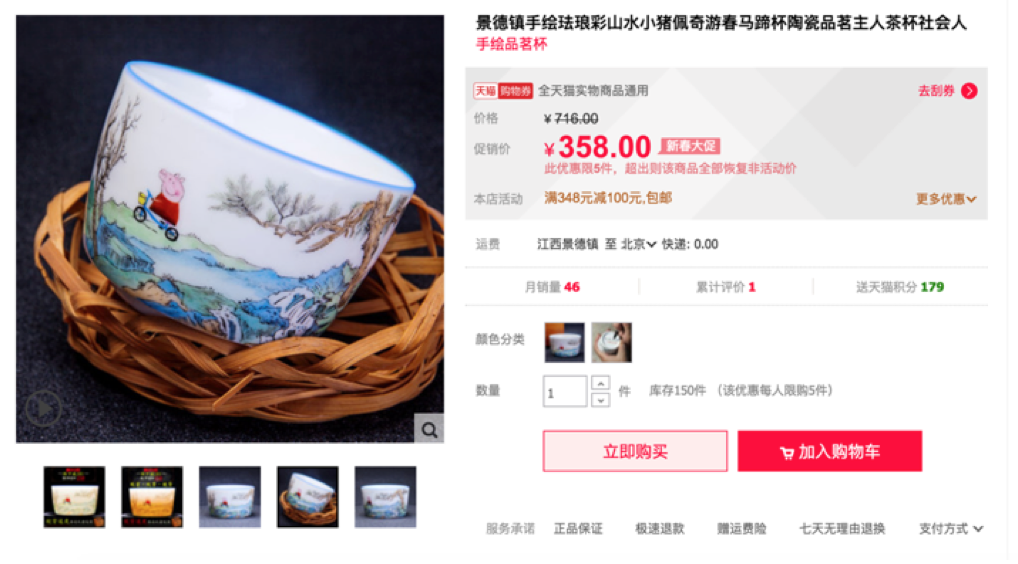
Peppa for adults.
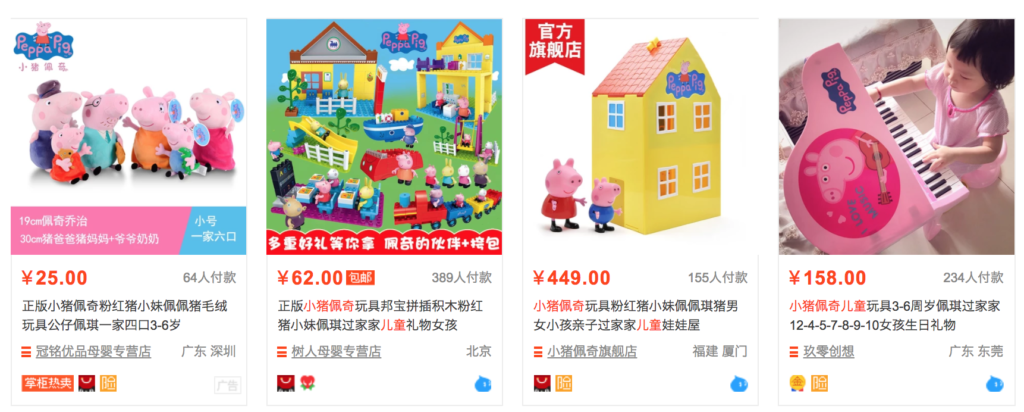
Peppa for kids.
Ok, I know what you are wondering. There are still some important questions we haven’t tackled yet –
First,
What does “social folk” really mean?
And,
Why, in association with Peppa, has the term become a sudden hit among young Chinese consumers?
In Celebration of Childishness
Yan and I didn’t have answers for these two questions to start with. In desperation, we turned to Xue, our fashionable friend who seemed to be already on the “social folk” bandwagon judging by her watch.
“Frankly, I don’t really know! I guess ‘social folk’ originally implies to those who have a lot of experience in dealing with the society? Like, someone I’m supposed to be once I left school?” Xue responded.
Thank god, this time we knew what Xue was talking about. Both born in 1992 and studied all the way till master degrees, Yan and I were late in the “adulthood”, or, “social folk” game here in China. We are turning 26 this year, yet the two of us are still constantly nagging over our fears of, welling, being adults (Yan dyed her hair pink last year, and I have been purchasing countless fluffy toys, including a giant, rainbow-colored unicorn. Just to give you an ieda of our mid-20s/early adulthood crisis...)
We laughed at each other for our childish behaviors, at the same time, we tried to examine ourselves in relation with a greater picture. Being an adult in the Chinese society really is no easy task; like Xue mentioned, once an individual steps out of the ivory tower, immediately she or he would be expected to be a lot of things overnight: to be sophisticated, to be successful, to own a house in a big city, to be married and have kids – these are just some of the “usual” expectations from the parents and the “society”, a term so vague yet so important for every Chinese person.
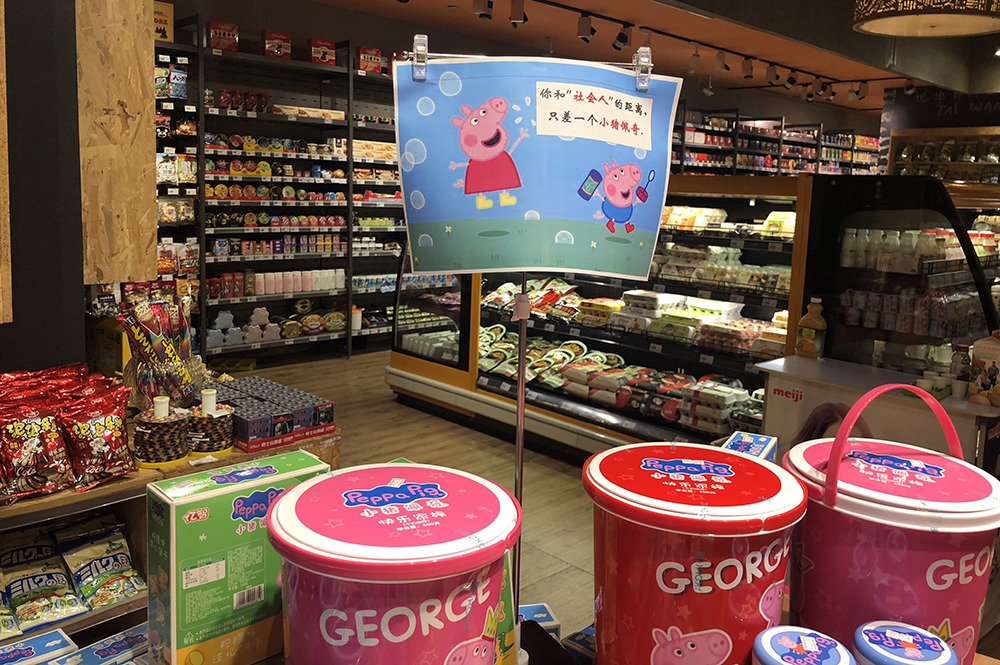
"All it takes for you to be a real social folk is a Peppa!" - slogan spotted in Chinese supermarket.
Yan and I are two lucky individuals with open-minded parents and tight-knit support systems, yet even so, we still felt insecure and anxious in dealing with adulthood in our mid-20s. Most of our friends and colleagues are not as lucky though; in our day-to-day conversations, we constantly hear their stresses and perplexities as young adults in the Chinese society. Today, economic growth has reached a point that new opportunities for individuals are sheered out and hard to get; for college graduates who seek a better livelihood in the cities, there are really no alternative but to work hard, and work harder. Meanwhile, pressures for marriage and having children are also constantly looming in the background thanks to parents, grandparents and other relatives who are relentlessly enthusiastic over these subject matters.
“I’ve never watched any episode of Peppa, I just like it for its childishness! Isn’t that enough? ” A new response from Xue popped up in our WeChat Group.
It is enough, perhaps. No one knows exactly why “social folk 社会人” has become such a feverous term, we all know, however, for young Chinese adults who are pressured to shoulder a lot of responsibilities, Peppa Pig - the publicly recognized, popular series targeted at young children – has become an escape. Adulthood is a cruel, one-way track, so when something as simple-minded as Peppa Pig comes out, we celebrate it, and celebrate it hard.
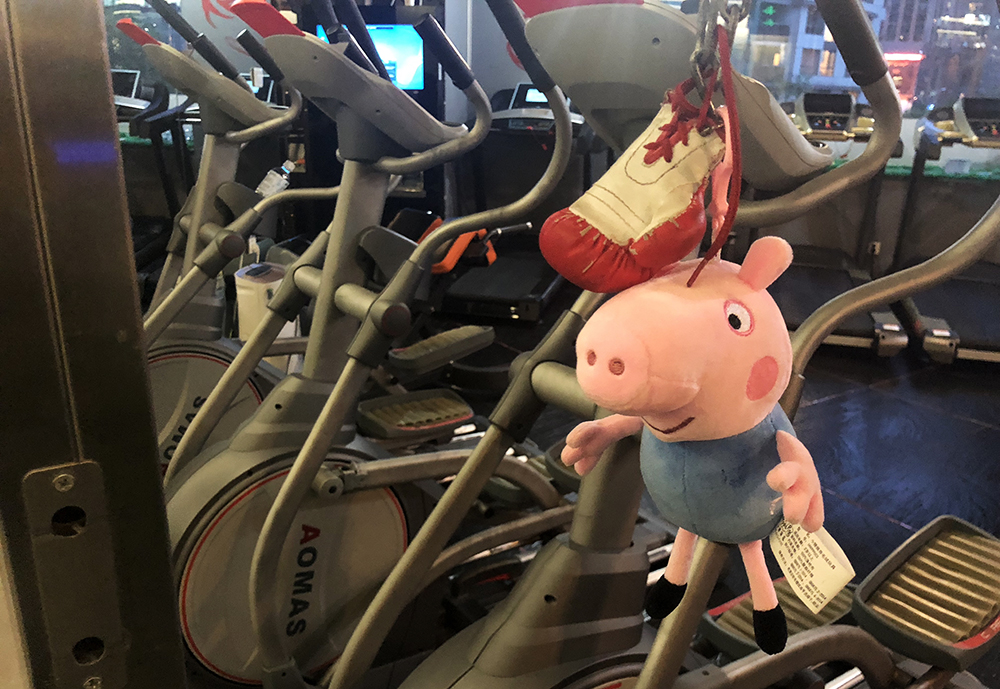
Peppa spotted in my local gym.
I still remember a conversation with my mom right before my 25th birthday.
“Can’t believe I am turning to be 25,” I moaned, “I always feel like I am still a teenager! Not adulthood-ready yet, NO.”
“Oh girl. When I was your age I was already pregnant and soon would be a mother.”
“Did you feel ready?”
“I don’t think I had the option of not being ready. You guys are a lucky generation. You actually have the option of being 25 and not feeling ready – what a privilege.”
Viewing the Peppa Pig craze in the context of China’s historical changes, it suddenly makes more sense. As much as the burden of adulthood is heavy, we are the generation that at least has an temporary escape. We have the opportunity to celebrate childishness, to leverage our power as global consumers, and to stay rebellious by dying our hair pink, purchasing endless fluffy toys, and, of course, to swing that giant, bright Peppa Pig watch on our wrists.
A spoiled privilege for sure, but at the same time, really, it is our last resort.
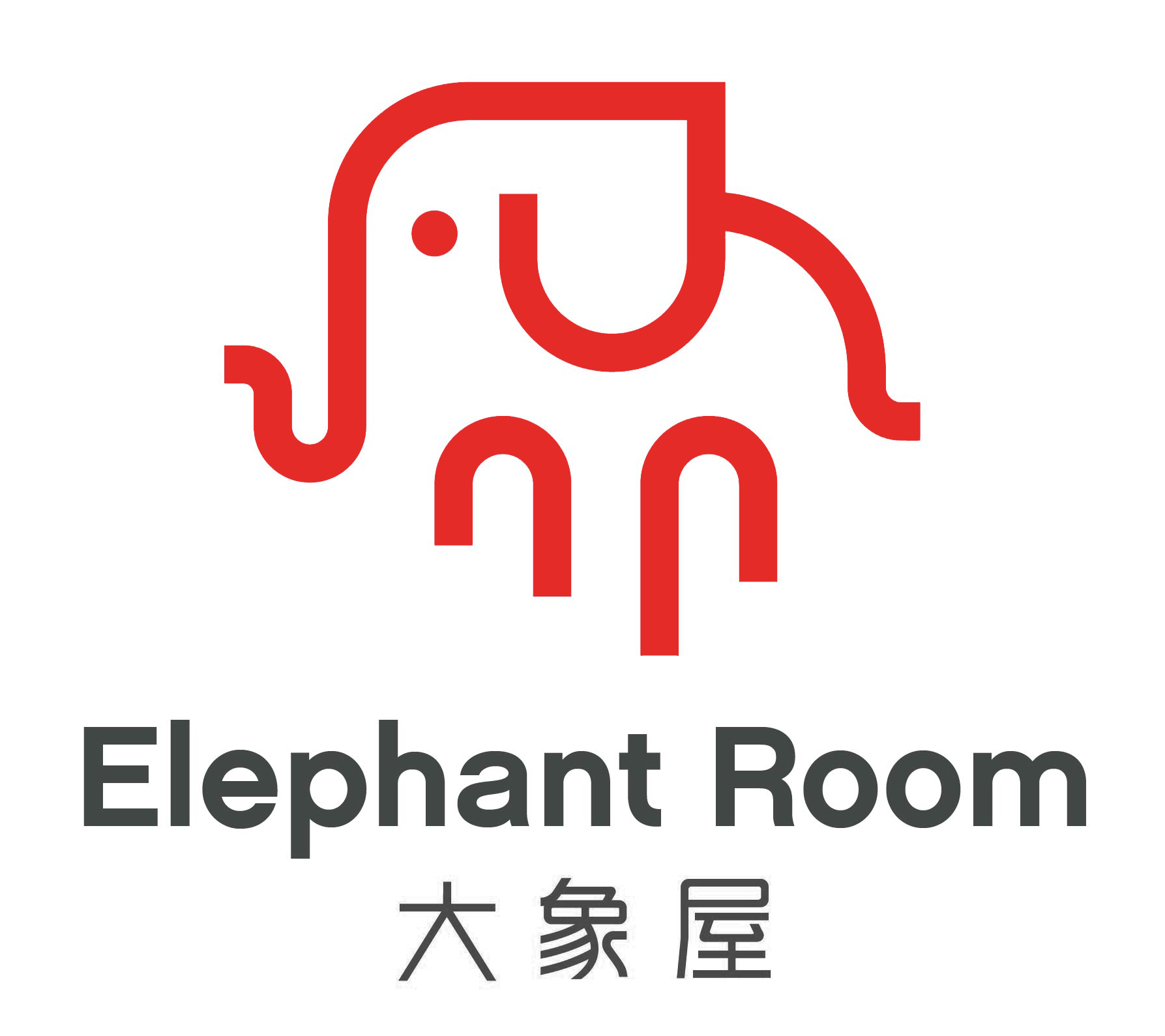
Funny think is Peppa is now blocked in China… lol
https://mp.weixin.qq.com/s/I9UxZZIIqDk5kiBr-Lx2WA
Hi Yan & Biyi, I saw some articles on western media claiming that Peppa Pig had been blocked from Weibo. Is that true?
No. Peppa remain very popular on Weibo and all other social platforms. The topic #Peppapig and #Peppapigsocialfolk are all available on Weibo.
There is no solid evidence apart from a table named “Douyin community rule” listing Peppa as a “forbidden element”, which is not verified either. Even if Douyin is trying to reduce the popularity of Peppa, there are still videos and topic of Peppa available on Douyin. In fact, Peppa remain hugely popular across all social platforms in China. If the Chinese authority really wish to eliminate Peppa, you wouldn’t be able to see anything related to it. I know censorship against a cartoon character sounds very sexy to the media, but they should really do some fact check before jumping… Read more »
@yan Yeah, I thought it sounded sketchy… Over the past year I’ve realized that western media really likes to jump on and emphasize news that makes China look bad. We westerners pride ourselves on our freedom of press and facts-based journalism, but maybe our own press is not as accurate as we like to think. As an ABC who’s spent some time in China now, I regularly wonder how many of my negative preconceptions were based in truth rather than media bias. Though to be fair, I’ve also noticed the same bias in Chinese media regarding news about the US… Read more »
@maggie:
In the US at least, it’s because (or rather, it gets traction with audiences because) China is still portrayed as Communist, and therefore bad. Though I doubt the people in charge of dictating how China is portrayed think that way or care; China is just a power independent from them, and therefore bad.
With thanks! Valuable information!
site here https://herrwett.de